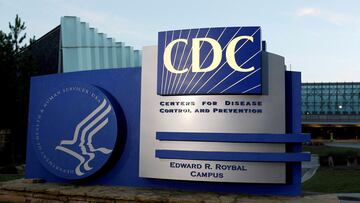Here are the steps you should take with food during the E. coli outbreak: here’s what kills the bacteria and what doesn’t
The new McDonald’s health scare may have you worried for your general food safety but it is easy to keep your kitchen clean and your gut healthy.


The recent E. coli outbreak linked to McDonald’s Quarter Pounders has raised concerns about food safety across the United States. With at least 49 confirmed cases in 10 states and one reported death, it’s crucial to understand how to properly handle food to prevent E. coli contamination.
E. coli is a type of bacteria commonly found in the intestines of humans and animals. While most strains are harmless, some can produce toxins that cause severe illness. The strain involved in the current outbreak, E. coli O157:H7, is particularly dangerous and can lead to serious complications.
Effective Methods to Kill E. coli
Proper cooking is the most reliable way to eliminate E. coli:
- Cook ground beef to an internal temperature of at least 160°F (71°C).
- Use a food thermometer to ensure the correct temperature is reached.
- Avoid consuming raw or undercooked meat products.
To minimize the risk of E. coli contamination:
- Wash hands thoroughly with soap and water before and after handling food.
- Use separate cutting boards for raw meat and produce.
- Clean all utensils, cutting boards, and countertops with hot, soapy water after use.
- Refrigerate perishable foods promptly.
While washing produce doesn’t guarantee the removal of all bacteria, it can help reduce the risk:
- Rinse fruits and vegetables thoroughly under running water.
- Use a clean vegetable brush to scrub firm produce like melons and cucumbers.
- Dry produce with a clean cloth or paper towel to further reduce bacteria.
Some common practices are not effective in killing E. coli:
- Freezing does not kill the bacteria; it only prevents growth.
- Rinsing meat before cooking is not recommended and may spread bacteria.
- Using vinegar or lemon juice to wash produce is not proven to be more effective than water alone.
Related stories
If you think you have E. coli and experience severe symptoms such as bloody diarrhea, intense abdominal cramps, or a fever exceeding 102°F, contact your healthcare provider immediately.
Get your game on! Whether you’re into NFL touchdowns, NBA buzzer-beaters, world-class soccer goals, or MLB home runs, our app has it all. Dive into live coverage, expert insights, breaking news, exclusive videos, and more – plus, stay updated on the latest in current affairs and entertainment. Download now for all-access coverage, right at your fingertips – anytime, anywhere.


Complete your personal details to comment